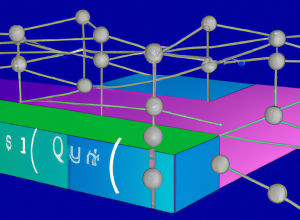 Recent results have hinted at the role quantum computing and technology may play in the future of machine learning, but much remains to be understood. For example, it has been shown that quantum computers can offer exponential improvements in learning from quantum data that comes from the physical world, and that compact quantum models can allow us to sample from probability distributions that seem inaccessible to traditional computing devices. In addition, general purpose quantum algorithms exist to dramatically speed up a number of subroutines that are pivotal in existing machine learning systems, but come with challenging caveats or have led to novel classical algorithm counterparts that challenge the advantage provided by quantum systems. However, fully grasping these results and connecting them to problems of interest today remains challenging for many reasons.
Recent results have hinted at the role quantum computing and technology may play in the future of machine learning, but much remains to be understood. For example, it has been shown that quantum computers can offer exponential improvements in learning from quantum data that comes from the physical world, and that compact quantum models can allow us to sample from probability distributions that seem inaccessible to traditional computing devices. In addition, general purpose quantum algorithms exist to dramatically speed up a number of subroutines that are pivotal in existing machine learning systems, but come with challenging caveats or have led to novel classical algorithm counterparts that challenge the advantage provided by quantum systems. However, fully grasping these results and connecting them to problems of interest today remains challenging for many reasons.
In this workshop, we hope to bring together experts from mathematics, quantum algorithms, and machine learning to better understand this intersection and reach the full potential of quantum computing and machine learning. This includes, but is not limited to, the ways in which quantum computers can accelerate existing machine learning algorithms, how we process inherently quantum data with either classical or quantum computers, and ways in which machine learning can change how we operate quantum devices. We hope to identify a number of open questions of interest in each area, and draw strong connections to the mathematical foundations of both quantum computing and machine learning.
This workshop will include a poster session; a request for posters will be sent to registered participants in advance of the workshop.
Srinivasan Arunachalam
(IBM Research - Almaden )
Jens Eisert
(Freie Universität Berlin)
Marika (Maria) Kieferova
(University of Technology, Sydney)
Jarrod McClean
(Google)
Nathan Wiebe
(University of Toronto)